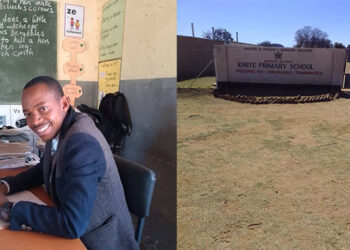THE Urban Development Corporation (UDCORP) has invited local pension funds to invest in the Knockmalloch mixed residential project on a 400-hectare property located 33 kilometres from Harare along Bulawayo Road, according to a letter seen in his publication.
UDCORP is a State-owned company, which was primarily set up for the purposes of encouraging and assisting local authorities to plan and coordinate urban growth and development, as well as to improve the standards of living of the general populace of Zimbabwe through the development of proper housing and related infrastructure. It also offers audit services to Zimbabwe’s local authorities.
The company has offered pension funds the opportunity to purchase a 41,7-hectare piece of semi-developed prime land for US$12 per square metre with flexible payment terms. The land is suitable for individual stands, cluster homes or high-rise flats.
Other investment opportunities within the Knockmalloch project include fully serviced individual stands ranging from 200-2 000 square metres priced at US$38 per square metre.
Payments can be done over three years, UDICORP chief executive Joey Shumbamhini said in a letter to chairpersons of local pension funds. There is also a block of partially serviced land measuring 1,75 hectares zoned for high-rise flats.
Mr Shumbamhini said the Knockmalloch project was a unique opportunity for pension funds to invest in Zimbabwe’s growing urban development sector. He said the project was well-located, closer to Harare and Lake Chivero. It is also well-planned, with a mix of housing types to suit the needs of a variety of buyers.
Knockmalloch is private land under the UDCORP Parent Title Deed – Number 2534/2017 and investors who purchase Land under will get Title Deeds, he added.
Investors who purchase land under the Knockmalloch Project will get access to biodigesters, which are going to be constructed by UDCORP for the whole project.
Investing in property is a strategy that uses real estate as an investment to protect pension retirement savings from the erosive effects of inflation. When inflation is high, the value of money decreases, which means that pension savings will not be worth as much in the future.
However, property is a good hedge against inflation because it tends to appreciate in value over time. This is because the demand for land and housing is relatively inelastic, meaning that it does not change very much in response to price changes. As a result, the value of property tends to keep pace with inflation, or even outpace it in some instances.
Despite Zimbabwe’s relatively stable macro-economic environment, industry players warn that pension funds should remain alive to the potentially devastating effects of inflation on retirement savings. They said the pension funds should consider investing in property or foreign-denominated instruments to protect against inflation.
They said the pension funds need to be mindful of the potential long-term impact of inflation on their members’ retirement savings and investing in assets that are likely to appreciate in value over time, such as property or foreign-denominated instruments, can help to protect members’ savings from inflation erosion.
Zimbabwe went through a period of erosion of pension fund values emanating largely from the effects of the hyperinflationary environment the country experienced from 2000 up to 2009 and the subsequent conversion of funds from Zimbabwean dollars to US dollars.
Annual inflation reached 500 billion percent in 2008, according to the International Monetary Fund.
The Government wiped out the hyperinflation in 2009 when it abandoned the use of the Zimbabwe dollar for a basket of foreign currencies, dominated by the United States dollar, leading to what was generally called dollarisation.
The Government appointed a commission of inquiry chaired by retired Justice Smith ,which confirmed a “huge” loss of value and recommended compensation for the loss suffered.
Source zimbabwe Situation









